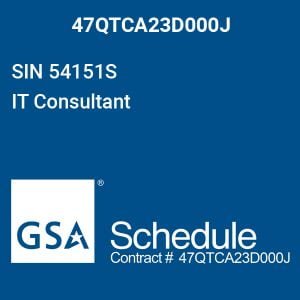The demand for compliance has increased considerably over the years as people become more self-aware and privacy becomes a commodity rather than a right. As the prevalence of “shared” networks increases, so does the need for robust compliance standards and their compliance – and with the introduction of the cloud, there has been a significantly increased focus on IT compliance.
Studies suggest that 46% of public entities are already using AWS cloud technology, across the globe, as of Q3 of 2022. This is the result of a rapidly growing cloud infrastructure as a service for public entities and governments. In 2022, the market is expected to stand at $120 billion, with a CAGR of 12.6%.
As public entities and businesses increasingly turn to cloud-based solutions, it’s important to understand how the technology is helping with compliance. Cloud computing has provided a number of benefits in this regard, from simplifying data management to reducing operational costs.
This article takes a closer look at compliance through the magnifying glass of cloud technology to help you understand just how important the technology has become, not just for organizations’ safety, but also for the entire digital ecosystem.
How Cloud Technology Can Help with Compliance – A Quick Overview
When it comes to compliance, one of the most important considerations is data security. The cloud can be a great way to ensure that data is properly protected, as it offers a number of features that can help to keep information safe.
For example, cloud-based solutions often provide access control features that allow businesses to restrict who can see and edit certain data. Additionally, many cloud providers offer encryption services that can further protect data at rest or in transit.
Another important consideration when it comes to compliance is the ability to track and audit activity. Cloud-based solutions can make it much easier to do this, as they typically provide comprehensive logs of all activity within the system. This can be extremely valuable when it comes to meeting regulatory requirements or investigating potential incidents.
In the US, this involves addressing OSHA requirements, while in the UK, it deals with HSE requirements across a wide range of areas.
Finally, it’s worth noting that cloud computing can also help to reduce operational costs. By moving to a cloud-based solution, businesses can save money on things like hardware and software licenses. Additionally, the pay-as-you-go nature of many cloud services can help to keep costs down by only paying for what is actually used.
Overall, there are a number of ways in which cloud technology can help with compliance. By understanding these benefits, businesses can make more informed decisions about whether or not the move to the cloud is right for them.
Unlock the future of intelligent applications with our cutting-edge Generative AI integration services!
Understanding The Risk of Non-Compliance on the Part of Organizations
Organizations face a number of risks if they fail to comply with various regulations. These can include financial penalties, damage to reputation/goodwill, and even criminal charges in some cases. As such, it’s important for businesses to understand the potential consequences of non-compliance and take steps to mitigate them.
Financial Penalties
One of the most significant risks associated with non-compliance is financial penalties. In many jurisdictions, organizations that violate certain regulations can be subject to heavy fines. In some cases, these can be large enough to bankrupt a business. Additionally, organizations may also be required to pay back any ill-gotten gains that were made as a result of the violation.
Damaged Reputation or Goodwill
Another risk associated with non-compliance is damage to reputation or goodwill (and in turn, organizational stock prices). When an organization is found to be in violation of a regulation, it can negatively impact its public image.
This can lead to lost business and reduced trust from stakeholders. In some cases, an organization’s reputation may never recover from a major compliance failure.
Criminal Charges
Criminal charges are a possibility in cases of severe or repeated violations of certain regulations. This is typically only seen in the most serious of cases, but it’s something that businesses need to be aware of. If convicted, an organization may face significant fines and even jail time for its employees.
Overall, the risks associated with non-compliance are significant. Businesses need to be aware of these dangers and take steps to mitigate them. Failure to do so could lead to financial ruin, damage to reputation, and even criminal charges.
Compliance & The Cloud Computing Era
Cloud computing has become increasingly popular in recent years, as it offers a number of benefits over traditional on-premises solutions. However, there are also a number of compliance considerations that businesses need to be aware of when making the switch to the cloud.
Data Security
When stored in the cloud, data is typically accessible from anywhere with an internet connection. This can be convenient for businesses, but it also means that data is more vulnerable to theft or loss. As such, it’s important for businesses to ensure that their data is properly protected when using a cloud-based solution.
One of the most important things that cloud technology can do is help businesses keep track of their data. When data is stored in the cloud, it’s typically easier to track and manage. This can be helpful in a number of ways, including ensuring that data is properly protected and meeting all of the necessary compliance requirements.
Data Privacy
Depending on the jurisdiction, there may be regulations in place that dictate how personal data must be handled. This includes things like storage, access, and destruction. Failure to comply with these regulations can result in heavy fines.
One key path that cloud technology adopts to help with data privacy compliance is by providing access control features and limiting data access. This includes things like user authentication and authorization. By controlling who has access to data, businesses can help ensure that only authorized individuals are able to view or modify it and ensure the privacy of their customers. This can be helpful in meeting a number of different compliance requirements, such as the ISO 27701 and the GDPR.
Compliance Implications of Using Cloud-Based Applications
In many cases, cloud applications are subjected to the same regulations as traditional on-premises software on top of additional requirements that need to be met. By adopting the cloud, organizations have to follow a number of additional compliance standards for information security, privacy, physical safety, and more.
All these elements combined ultimately benefit the organization itself. It has been seen that more than 60% of organizations understand the need for compliance requirements after adopting the cloud because of how evident the risk of these threats become. The more sensitive information a company has access to, the more pressing the need for compliance becomes.
Cloud-based solutions often come with built-in monitoring and reporting features. This can be helpful in a number of ways, including identifying potential compliance issues and ensuring that corrective action is taken if necessary.
For example, by implementing a robust and secure information management system on the cloud, two basic ISO codes (among others) that you immediately comply with are ISO 9001:2015 and ISO 27001:2013.
Overall, compliance is a key consideration for businesses when making the switch to the cloud. Failure to properly consider compliance risks can lead to heavy fines, damage to reputation, and even criminal charges. As such, it’s important for businesses to understand the compliance implications of using cloud-based solutions before making the switch.
This also shows that cloud technology can be extremely helpful in meeting compliance requirements. By making it easier to track and manage data, providing access control features, and offering built-in monitoring and reporting, and more, cloud-based solutions can help businesses meet a wide range of compliance obligations.
-
 GSA HACS Principal Security Architect$153.15
GSA HACS Principal Security Architect$153.15 -
 GSA IT Consultant$81.12
GSA IT Consultant$81.12 -
 GSA Cloud Senior DevSecOps Consultant$143.62
GSA Cloud Senior DevSecOps Consultant$143.62
Cloud Technology For Better Control & Better Compliance
There are many reasons to consider using cloud-based solutions, but one of the most important is the fact that they offer better control. This is especially true when it comes to compliance. With on-premises solutions, businesses have to rely on a variety of different tools and processes to ensure compliance. This can be difficult to manage and often leads to compliance problems.
With cloud-based solutions, businesses have much better control over their data. They can easily track who has access to it and what they’re doing with it. This makes it much easier to ensure that only authorized individuals are able to view or modify sensitive data.
In addition, cloud-based solutions often come with built-in monitoring and reporting features. This allows businesses to quickly identify potential compliance issues and take corrective action if necessary.
Overall, the better control that cloud-based solutions offer helps lead to better compliance. By making it easier to track data and monitor activity, cloud-based solutions can help businesses meet a wide range of compliance obligations, such as the ISO 9000 and 9001 family. As such, they should be considered when looking to improve a business’s compliance posture.
Monitoring Services Compliance Issue Warnings
One of the most important features that cloud-based solutions offer is the ability to monitor activity. This includes things like user authentication and authorization. By controlling who has access to data, businesses can help ensure that only authorized individuals are able to view or modify it.
This can be helpful in meeting a number of different compliance requirements. In addition, cloud-based solutions often come with built-in monitoring and reporting features. This allows businesses to quickly identify potential compliance issues and take corrective action if necessary. For example, with the right monitoring services, two ISO standards your organization can comply with include the ISO 19600:2014 and the ISO 37301:2021.
Automated Cloud Data Archiving and Record-Keeping for Better Compliance
Another important feature that cloud-based solutions offer is the ability to automatically archive data. This can be helpful in meeting a number of different compliance requirements, such as those related to record-keeping.
Automated archiving ensures that data is properly stored and organized, making it easier to retrieve if necessary. In addition, it can help businesses save time and money by reducing the need for manual record-keeping.
This shows that automated data archiving is a valuable feature that cloud-based solutions offer. By making it easier to store and organize data, cloud-based solutions can help businesses meet a wide range of compliance obligations, such as the AS ISO 15489.1:2017, ISO 27002:2022, OSHA ADM 03-01-004, and more.
Cybersecurity Compliance with The Cloud
One of the most important compliance requirements businesses must consider is cybersecurity. With the increasing prevalence of data breaches, it’s more important than ever for businesses to take steps to protect their data. Unfortunately, many businesses are still using outdated security solutions that aren’t up to the task. This is where cloud-based security solutions come in.
Cloud-based security solutions offer a number of advantages over traditional on-premises solutions. First, they’re able to provide real-time protection against threats. This is because they’re constantly updated with the latest security intelligence. In addition, cloud-based security solutions are often more scalable and easier to deploy than traditional on-premises solutions. This makes them a good option for businesses that are growing quickly.
Some standards that cloud cybersecurity helps comply with include :
- PCI DSS. PCI DSS is the Payment Card Industry Data Security Standard. It’s a set of security requirements that businesses must follow if they process, transmit, or store credit card data.
- HIPAA. HIPAA is the Health Insurance Portability and Accountability Act. It’s a set of regulations that businesses must follow if they handle protected health information.
- GDPR. GDPR is the General Data Protection Regulation. It’s a set of regulations that businesses must follow if they process or store the personal data of European citizens.
- SOC2. SOC2 is the Service Organization Control 2 report. It’s a type of audit that businesses can use to show that they have adequate controls in place to protect customer data.
- ISO. ISO includes a set of security requirements that businesses can use to certify their information security management systems.
How Cloud Brings Compliance Expertise Closer
In addition to the benefits discussed above, cloud-based solutions also have the advantage of bringing compliance expertise closer. This is because many cloud-based solution providers offer compliance consulting services.
These services can help businesses assess their compliance needs and develop a plan to address them. In addition, they can provide ongoing support to ensure that businesses remain compliant over time across a much broader range of cloud-based ecosystems.
This means that businesses no longer have to go it alone when it comes to compliance. They can partner with a cloud-based solution provider that has the expertise and resources needed to help them meet their compliance obligations. This can save businesses a lot of time and money in the long run.
Cloud for the Future of Compliance
This shows that cloud-based solutions offer a number of cybersecurity and compliance advantages. From built-in monitoring and reporting features to automated data archiving, cloud-based solutions can help businesses meet a wide range of standardized and exceptional requirements.
The cloud has quickly become a staple in business for its ability to improve efficiency and collaboration. But the cloud can also help businesses with something else – compliance. From data storage and organization to real-time threat protection, the cloud can help businesses meet a wide range of compliance obligations. As such, businesses should consider using cloud-based solutions to improve their compliance posture.

